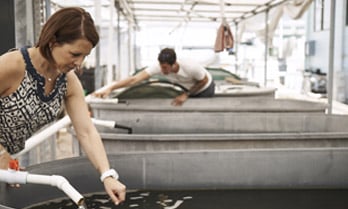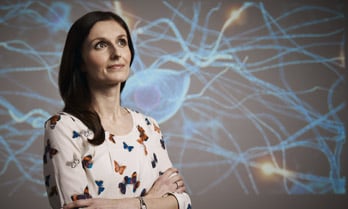







30 November 2021
2021 FELLOW DR JIAWEN LI, University of Adelaide
Never has it been more important to protect your heart. With over 20 million people worldwide each year experiencing acute coronary syndrome, including heart attack - atherosclerotic coronary artery disease (CAD) is the most common cause of death in middle- and high-income countries worldwide.
CAD is characterised by the buildup of fats, cholesterol and other substances, known as plaques on your artery walls. Although most plaques grow and subsequently remain stable, some plaques destabilise which can result in blood clots and obstruction of the coronary artery, leading to heart attack, sudden cardiac death, or heart failure. The threats of these plaques means that more than 2 million people worldwide receive stents each year, an invasive procedure to open up the artery.
Although significant progress has been made in cardiovascular research, every hour, more than 500 individuals experience heart attacks without any warning symptoms. This is because understanding of atherosclerotic plaque progression is still insufficient, and cardiologists do not currently have the tools to diagnose high-risk patients before their plaques become life-threatening. Jiawen wants to help determine individuals of both high and low risk to optimise patient treatment.
Jiawen grew up in the historic region of China, Xi'an, famous for its Terracotta Warriors. She went on to study at The University of California Irvine, before moving to Australia where she now works as a lecturer and researcher leading the intravascular imaging program at School of Electrical and Electronics Engineering, The University of Adelaide.
“I enjoy working at the interface between engineering and medicine. I believe that the convergence of knowledge via interdisciplinary research is key to addressing unmet needs and improve clinical outcomes.” said Jiawen Li.
A sole child of a biologist and a medical doctor, it makes you wonder if Jiawen’s scientific mind was a consequence of nature or nurture. Nonetheless she was encouraged to think outside the box and become a researcher inventing new medical devices to help doctors and patients. It was her drive for understanding and the tragic loss of her Grandfather after suffering a sudden stroke that made her passionate about cardiovascular research.
Jiawen will lead an internationally significant project to create the world’s thinnest cellular-resolution intravascular imaging catheter, which will be achieved by using novel 3D-printed micro-optics. This will eventually lead to a better understanding of heart disease, and more accurate diagnosis and optimised intervention for high-risk plaques.